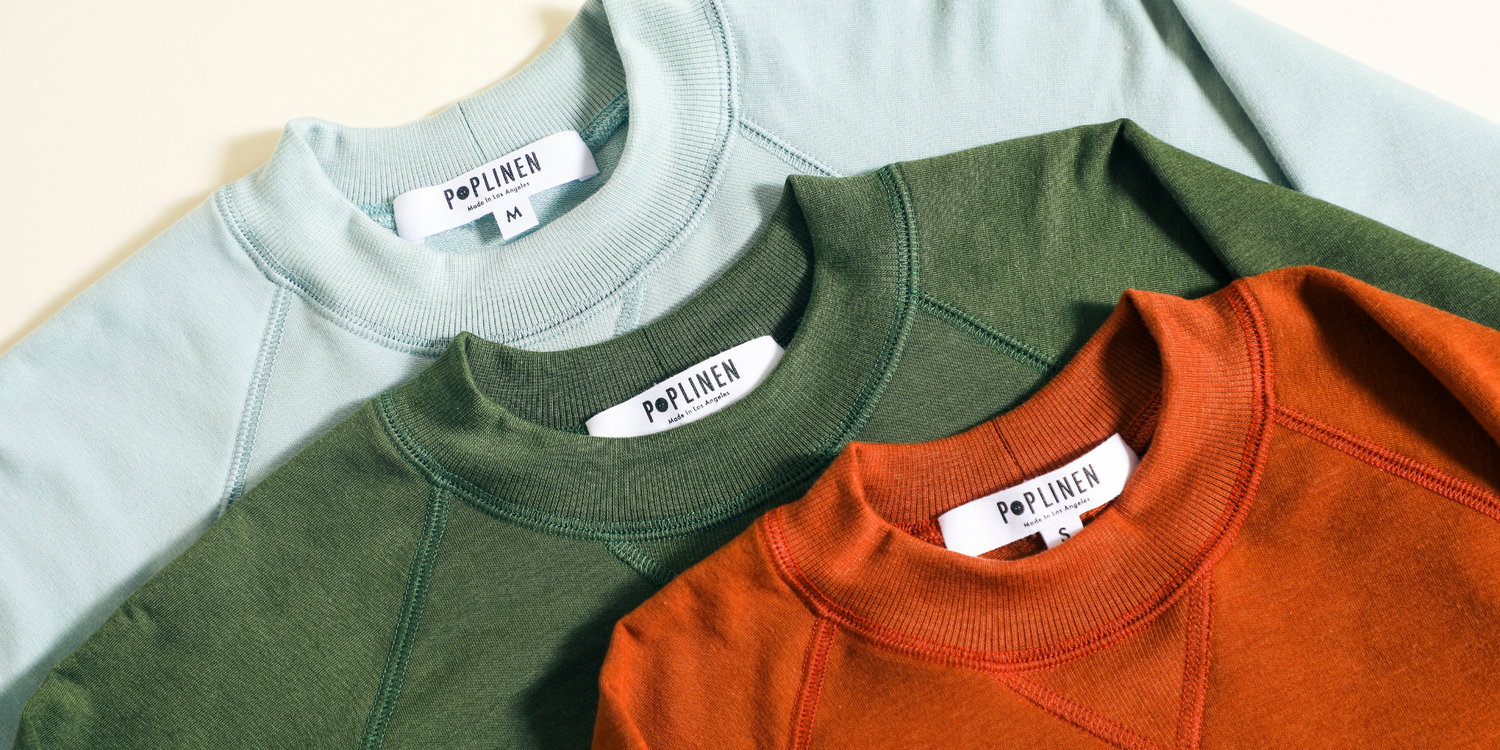What is that mysterious fabric called Tencel™️?

Absorbent, durable, lightweight and biodegradable, Tencel™️ has so much going for it. We’re doing a deep dive into the reasons we chose to continually use this innovative fiber.
You might have heard about Lyocell and Tencel™️ before. So, what are the differences? Essentially, the differences are nonexistent. Tencel™️ and Lyocell refer to a type of fiber produced from the natural cellulose of Eucalyptus trees. Tencel™️ is only the trademarked term that got used overtime to designate all lyocell brands, a bit like how we informally call tissues “Kleenex.”
Commercialized under this name by the Austrian company Lenzing AG in 1992, Tencel™️ came into existence after the numerous criticisms sparked by the polluting process of viscose. What was new was that the lyocell process used NMMO, a non-toxic and recyclable solvent.

How is Tencel™️ made?
Cellulose is harvested from the Eucalyptus tree. Just half an acre of Eucalyptus forest is enough to produce a ton of lyocell fibers, which is five times more than cotton! Additionally, these trees do not require irrigation, pesticides and insecticides.
Then, wood pulp is dissolved in NMMO; the solution is then filtered and forced through a device punctured with fine holes called a spinneret to form continuous filaments. As the fibers emerge from the spinnerets, they come into contact with a bath to solidify them. The newly formed fibers are then washed and dried to remove any residual solvent and impurities.

Depending on their intended use, the fibers may be cut and spun into yarns. At the end of the process, NMMO is recovered and reused in a closed-loop system and water is recycled through distillation (evaporation) of the spinning and rinsing baths.
Wow, that got real deep.
What are the advantages of Tencel™️?
- It is a biodegradable fiber: the fabric is made from non-chemical components that can decompose in soil. The fabric is OEKO-TEX® certified, meaning that the fabric is free from any harmful substances. Compared to cotton, the fabric also requires less dye and water because of its absorbent propriety.
- It is breathable and has a high moisture absorption capacity, making it ideal for sportswear or hot weather clothing.
- It is hypoallergenic thanks to its soft surface.
- Unlike cotton, which can easily wrinkle, lyocell is naturally smooth and better resists creases. It is also elastic, giving it excellent shape recovery after being stretched or worn, thus maintaining the original appearance of the fabric for longer.
- Exceptional durability: Lyocell fabrics withstand washing perfectly up to 40°C.
So, if you don’t know, now you know.
Here are some of our in-house Tencel™️ favorites!

Agnes Raglan Organic Cotton + Tencel™️ sweatshirt


by Lilas Mesmoudi



